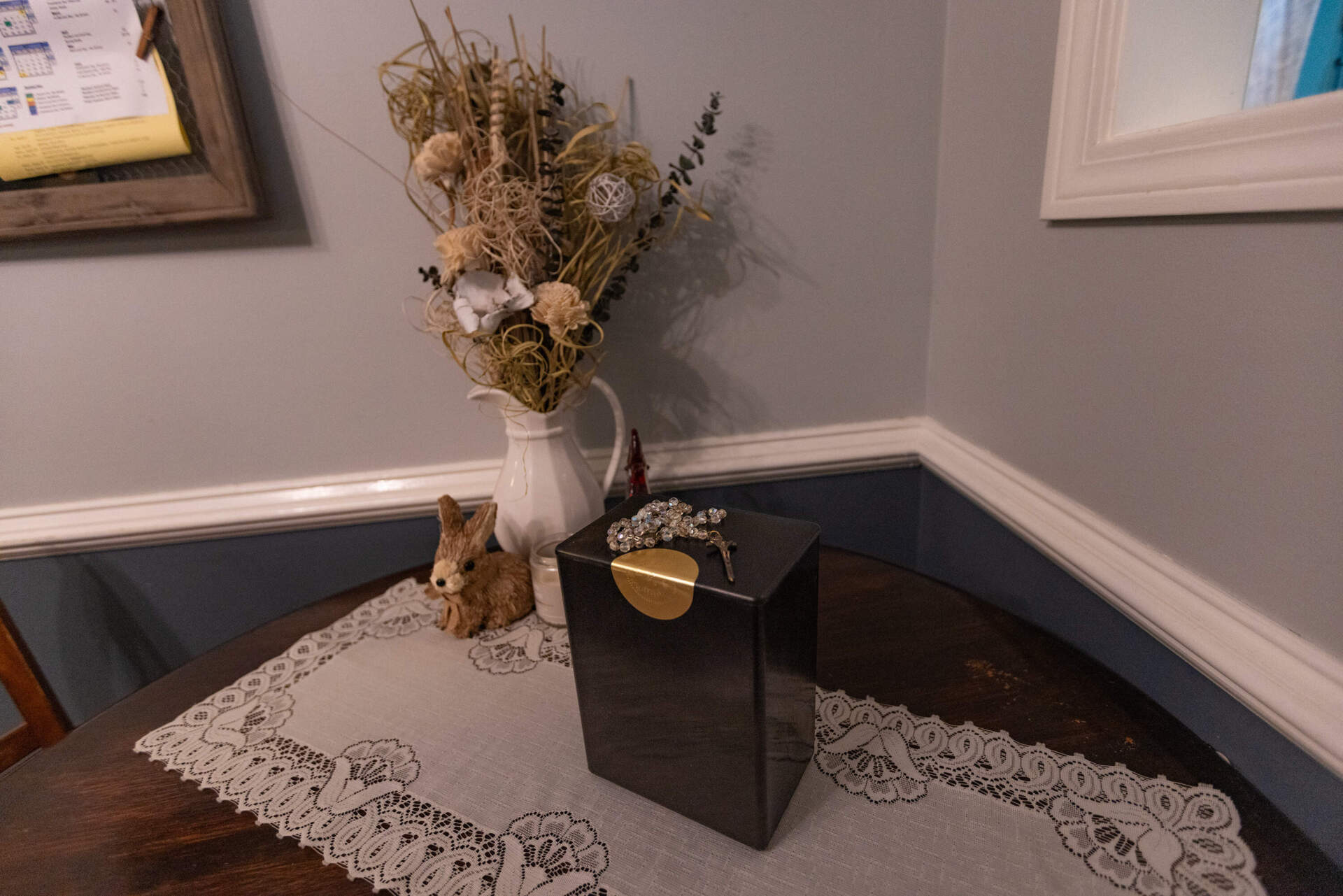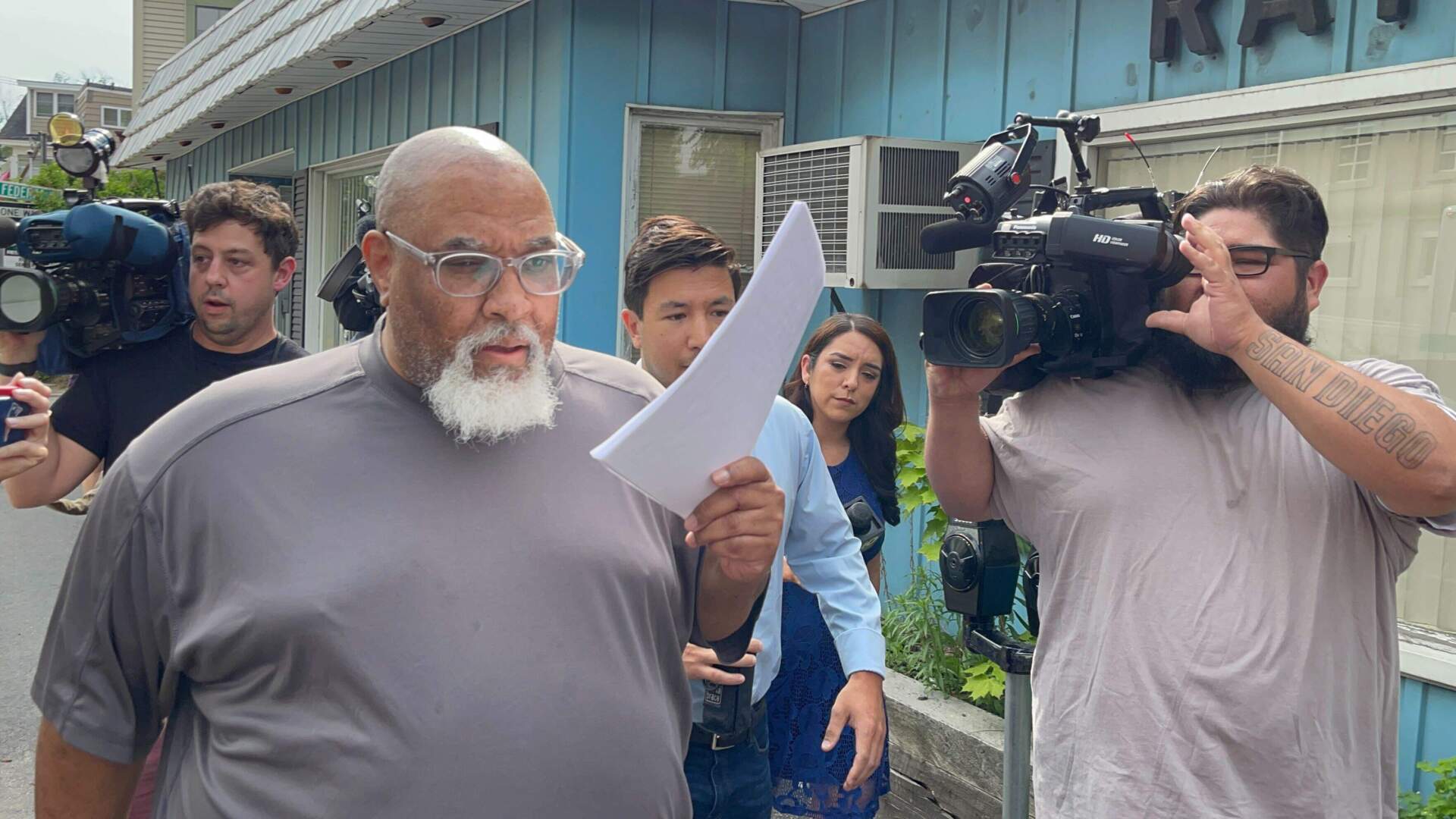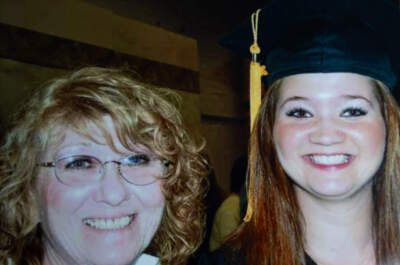Advertisement
After morgue thefts, Harvard avoids accountability

A year ago this month, Harvard Medical School administrators delivered shocking news to the staff in its anatomy program: their longtime morgue manager had been arrested for harvesting skin, organs and other parts from deceased donors who’d pledged their bodies to science.
The allegations were horrific. Yet in the wake of Cedric Lodge’s arrest and firing, no one else at Harvard appears to have faced repercussions, and the elite medical institution seems to have endured only a glancing blow to its reputation.
The school insists Lodge acted alone, and that no one else knew about the alleged scheme, including Harvard’s outside security contractor. Harvard Medical School, with its $857 million budget, successfully defended lawsuits filed by families of body donors against the school and Lodge’s supervisors; those cases have been dismissed. And Harvard has kept the donor families at arms’ length, communicating with them only through letters and a website.
“I don't feel like they care about me or any of the victims, families, loved ones, friends,” said Lara Szent-Gyorgyi. Her mother, Gwen, donated her body to Harvard and “may have been impacted,” according to a letter from the school. In Szent-Gyorgyi’s view, “They are closing ranks. They are protecting themselves and they are very intentionally shutting out all of us.”
Harvard has offered the families no indication whether it will ever conclude which bodies were affected by the thefts. It also has not offered to test body parts found in the homes of collectors around the country to determine whether they were obtained from Harvard’s morgue.

After the scandal became public, more than a dozen lawsuits were filed against Harvard, Lodge and his bosses, seeking damages but also answers: about supervision of Lodge, about the practices and policies in the morgue, and what the medical school knew or should have known.
A successful lawsuit could have forced Harvard administrators to sit for questioning under oath, and required them to produce documents currently kept under wraps.
But a Suffolk Superior Court judge ruled Harvard and Lodge’s supervisors have immunity under what’s called the Uniform Anatomical Gift Act. According to that state statute, an institution that acts “in good faith” in the handling of donor bodies cannot be held liable in a lawsuit. The families have an appeal pending in state court.
“It's appalling to the families I represent,” said one attorney, Kathryn Barnett. She described Harvard’s position as, “We take no responsibility. We will give you no answers.”
Harvard Medical School administrators, including Dean George Q. Daley, declined or did not respond to multiple requests for interviews. Spokespeople cited the families’ ongoing legal appeals.
In a statement, Harvard said, “The alleged criminal actions by former employee Cedric Lodge were shocking, abhorrent, and an appalling violation of Harvard’s expectations that our anatomical donors be treated with reverence, respect, and gratitude.” It went on to say, “We reaffirm our deep sorrow for the uncertainty and distress that families face as the criminal proceedings continue.”
Advertisement
Both of Lodge’s supervisors, who were named in the lawsuits, appear to still work at Harvard. They declined requests for comment.

Asked whether it had investigated or disciplined any employees as a result of the thefts, Harvard would not comment directly. In written responses, it sought to blame the entire ordeal on one person: Lodge. “No one else at HMS — employees, contractors, etc. — is facing any criminal charges or suspected of any wrongdoing.”
Brian Kelly, a Boston lawyer and former federal prosecutor, said in cases like this, “just because one person in a company is indicted, doesn’t mean he or she is the only bad actor.”
To get to the bottom of what happened, he said, “it has to be investigated both externally by the government and internally by the company or institution to make sure there aren't further problems with the program.”
After Lodge was arrested, Harvard named an outside panel to review the anatomical gift program. But the members were not tasked with determining how Lodge allegedly carried out the thefts. They were directed only to look at the program and to make recommendations moving forward.
Kelly said that was an unusual choice.
“If you don’t know what happened in the past that led to this, it’s very hard to devise a compliance program or training program to prevent it in the future,” he said.
There has been no report of a government investigation of the morgue, apart from the arrests of Lodge and his alleged customers. Harvard stopped accepting new donor bodies for five months while the outside panel completed its probe, then lifted the pause in November.
Harvard released a 26-page summary of the panel’s findings to the public, but withheld the full report. The public part did find fault with a number of ways the program was run: lax security; cracked floors and damage to a walk-in freezer used to store bodies; run-down labs built three decades ago. They also cited a lack of protocol for tracking body parts that are held long-term, and an onerous, manual tracking system for all donor bodies.
A task force is working through the recommendations and has implemented some changes, including security upgrades, according to Harvard.

But to the families of donors, Harvard’s response to the crimes carried out in the morgue has been woefully opaque. Many say they expected much more of the school.
“The amount of negligence that is here is astonishing,” said Amber Haggstrom. The body of her mother, Donna Pratt, was at Harvard from 2020 to 2022 – in the middle of Lodge’s alleged thefts. “This should have never, ever happened. This is the world's most reputable school.”
Szent-Gyorgyi, whose mother Gwen donated her body to Harvard, said when an organization faces a crisis, its leaders have options on how they respond. While some step up with concrete measures to reassure the public, others stick to their talking points and wait for the moment to pass.
“It makes me wonder,” Szent-Gyorgyi said. “If they can't hold themselves to a high standard on something as egregious as this, what else do they just sweep under the rug?”
